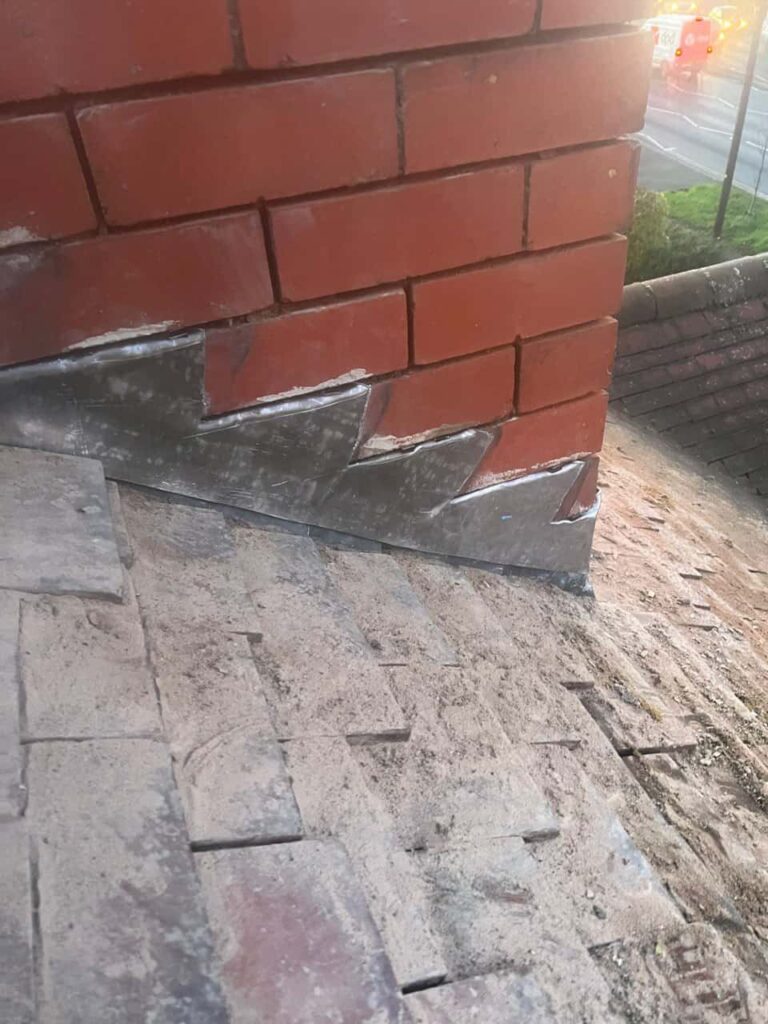Industrial roofing requires specialised solutions that offer durability, flexibility, and long-lasting protection. One such solution that has gained popularity in recent years is liquid roofing. This innovative approach involves applying a seamless, waterproof membrane to an existing roof, providing an effective barrier against leaks, weather damage, and wear. At Hucknall Roofing Repairs, we specialise in providing industrial roof repairs across Hucknall, Nottingham, using the latest liquid roofing technology. In this blog post, we’ll explore the benefits of liquid roofing and why it is ideal for industrial roof repairs.
What is Liquid Roofing?
Liquid roofing is a process where a high-quality liquid membrane is applied to the surface of a roof. Once applied, the liquid cures to form a seamless, waterproof barrier that adheres to the existing roof structure. It is highly flexible and can be applied to a range of surfaces, including metal, felt, asphalt, and concrete, making it an adaptable solution for various industrial buildings.
Liquid roofing can be used for both minor repairs and full-scale roof refurbishments, depending on the condition of the roof. The technology is particularly well-suited to industrial roofs, which often have large surface areas, complex structures, and face significant exposure to the elements.
Key Benefits of Liquid Roofing for Industrial Repairs
1. Seamless Waterproofing
One of the primary advantages of liquid roofing is its seamless application. Traditional roofing methods often involve sheets or panels that leave seams vulnerable to leaks over time. With liquid roofing, the membrane is applied as a single, continuous layer, eliminating seams and reducing the risk of water ingress. This makes it particularly effective for large industrial roofs, where leaks can lead to costly disruptions in operations.
2. Cost-Effective Solution
Liquid roofing offers a cost-effective solution for industrial roof repairs. Rather than requiring a full roof replacement, liquid roofing can be applied directly to the existing surface, saving time, labour, and materials. This means less downtime for businesses and a more affordable approach to repairing worn or damaged roofs. Additionally, the long-lasting nature of liquid roofing ensures that maintenance and repair costs are minimised over time.
3. Fast and Efficient Application
Industrial buildings often require repairs that can be completed quickly to minimise operational downtime. Liquid roofing is fast and efficient to apply, meaning that disruptions to your business are kept to a minimum. Unlike traditional roofing systems, which may require extensive preparation and installation, liquid roofing can be applied swiftly, allowing normal operations to resume quickly.
4. Durability and Flexibility
Industrial roofs are exposed to harsh weather conditions, heavy machinery, and constant foot traffic. Liquid roofing is designed to withstand these challenges, offering excellent durability and flexibility. The membrane can expand and contract with temperature fluctuations, ensuring that it remains intact even in extreme weather conditions.
The high-quality materials used in liquid roofing are UV-resistant, meaning they are less likely to degrade under constant exposure to sunlight. This durability ensures a longer lifespan for industrial roofs, reducing the need for frequent repairs or maintenance.
5. Versatility for Complex Roof Structures
Many industrial buildings have complex roof structures with varying angles, joints, and penetrations, such as vents or skylights. Liquid roofing’s ability to conform to any shape or surface makes it ideal for these complex structures. Its flexibility allows it to be applied in areas where traditional roofing materials might struggle, providing comprehensive coverage and protection.
6. Environmental Benefits
Liquid roofing is also an environmentally friendly option. By applying a liquid membrane over an existing roof, the need for removing and disposing of old roofing materials is eliminated, reducing waste. Additionally, many liquid roofing systems are designed to enhance the energy efficiency of a building, reflecting heat and reducing cooling costs.
When Should You Consider Liquid Roofing?
If your industrial roof is starting to show signs of wear and tear, liquid roofing may be the ideal solution for repair or refurbishment. Some of the key signs that indicate liquid roofing could be beneficial include:
- Leaks or water ingress: If your roof is experiencing leaks, liquid roofing can provide a seamless waterproof barrier to stop further damage.
- Cracks, blisters, or other damage: Liquid roofing can cover and seal existing damage, preventing it from worsening.
- Deteriorating seams or joints: Liquid roofing is particularly effective in eliminating vulnerable seams, providing better long-term protection.
Why Choose Hucknall Roofing Repairs for Liquid Roofing?
At Hucknall Roofing Repairs, we have extensive experience in industrial roofing and are committed to using the latest technologies to provide durable, cost-effective solutions for our clients. Our expert team ensures that every liquid roofing application is carried out to the highest standards, ensuring your roof is protected for years to come.
We understand that downtime is costly for businesses, so we focus on delivering efficient services with minimal disruption. Our team will assess the condition of your industrial roof and provide tailored recommendations for repair or refurbishment using liquid roofing.
Conclusion
Liquid roofing offers an innovative, cost-effective solution for industrial roof repairs, providing seamless waterproofing, durability, and flexibility. At Hucknall Roofing Repairs, we specialise in applying liquid roofing to industrial buildings across Hucknall, Nottingham, ensuring your roof remains protected from leaks and damage.
Call us on: 0115 647 1193
Click here to find out more about Hucknall Roofing Repairs
Click here to complete our contact form and see how we can help with your Roofing needs.

